50 Cent helps twin brothers who brought down El Chapo tell their story
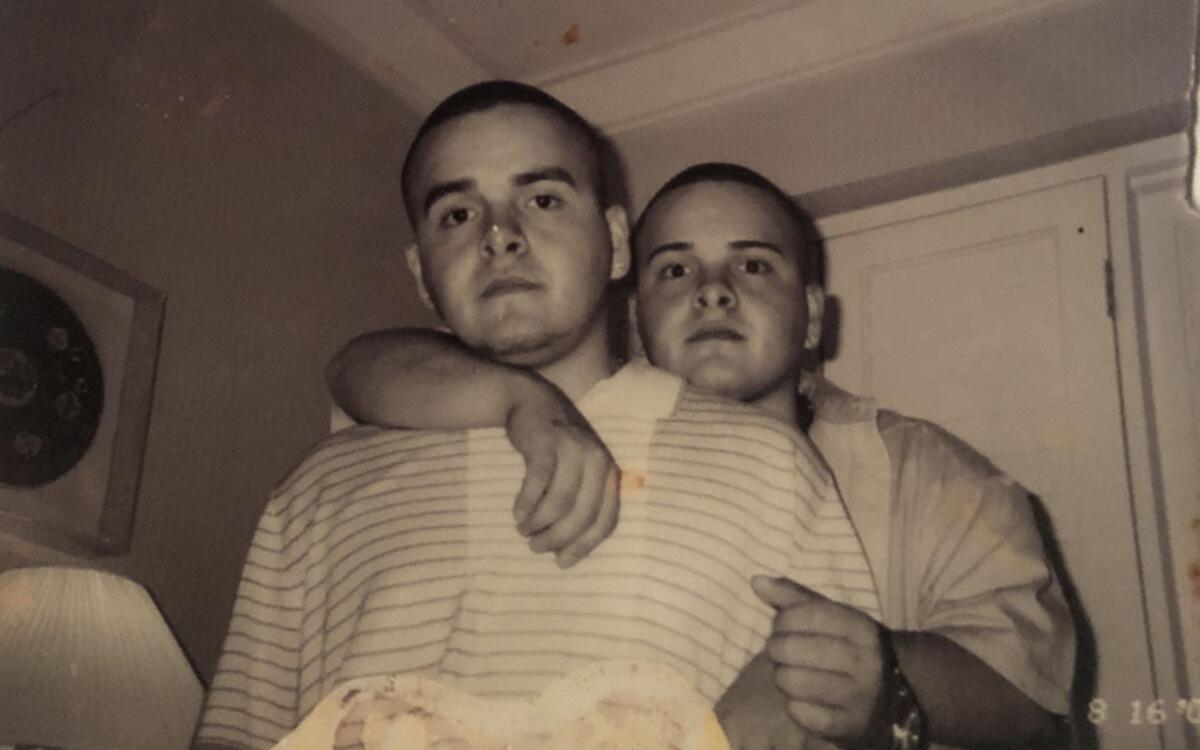
- Share via
In “Surviving El Chapo: The Twins Who Brought Down a Drug Lord,” rapper and businessman Curtis “50 Cent” Jackson and journalist Charlie Webster help guide listeners through a conversation that they have with twin brothers Pedro (Peter) and Margarito (Jay) Flores, drug dealers and federal informants whose cooperation led to the indictment of Sinaloa cartel leader Joaquín “El Chapo” Guzmán and many others.
The first season of the podcast, which premiered Oct. 19, is 12 episodes long. The final episode will be released Dec. 21 and is produced by Lionsgate Sound and G-Unit Audio in collaboration with iHeartPodcasts. Speaking publicly for the first time, the brothers tell the story of how they grew up in Chicago and were groomed in the ways of illegal drug trading by their father. That life led to another life of on-the-run adventures and many brushes with death. In their own words, they take listeners step by step through their harrowing tales of being kidnapped, finding love, using McDonald’s as a business template and getting the incentive to cooperate with authorities.
The brothers pleaded guilty to narcotics distribution and, after the government indicted them in 2008, became informants. The brothers had become not only invaluable to the cartel, but also had gotten close to Guzmán himself. Their undercover work led to indictments of Guzmán, his top leaders and dozens of other drug wholesalers from Chicago to Mexico. It also apparently led to the slaying of their father, who traveled to Mexico and vanished in 2009.
The engrossing story of the outlaw Midwest twin drug kingpin brothers is the focus of the podcast, but there is a story behind getting the story. It starts with the telling of how the unassuming duo were trying to do a good deed and incidentally crossed paths with a platinum-selling hip-hop artist.

Jackson recounts how one of the most expensive pieces of jewelry that he’d ever owned was stolen in Chicago from associates of his. They had gone to a party at Cabrini-Green, one of the roughest housing projects in the city (“Law enforcement would go in there when it was necessary, but even they didn’t go in there for no reason,” said Jackson). They left the party without the G-Unit chain they had flashed to others, and with one of their crew having been shot in the hand. Because the brothers were known to be locally rich, the piece found its way to them as one of the only people around who could possibly afford to buy it. Through a record company connection, the brothers were able to return the jewelry to Jackson. From what he understood, the brothers valued the relationship with him more then the jewelry, so they forged a bond.
It was years later that Jackson heard about the brothers again. Though they had been captured earlier, they received 14-year prison sentences in 2015 for drug smuggling. They had been helping the authorities build a case against El Chapo, and their status as informants was now public knowledge. As they received their sentence, the federal judge handling the case warned them that they “would have to look over their shoulders for the rest of their lives.”
“When the indictment fell, I was like, ‘Oh s---!’” Jackson said. “I recognized who it was, but we hadn’t even discussed that they were the whole [operation]. Period. At that point they were moving $2 billion worth of drugs. Directly from El Chapo?! You see people that get caught that may have only been customers of customers getting life [sentences for dealing with El Chapo]. Double life.” With that knowledge, the “In da Club” and “21 Questions” rapper knew that there was a lot more to their story.
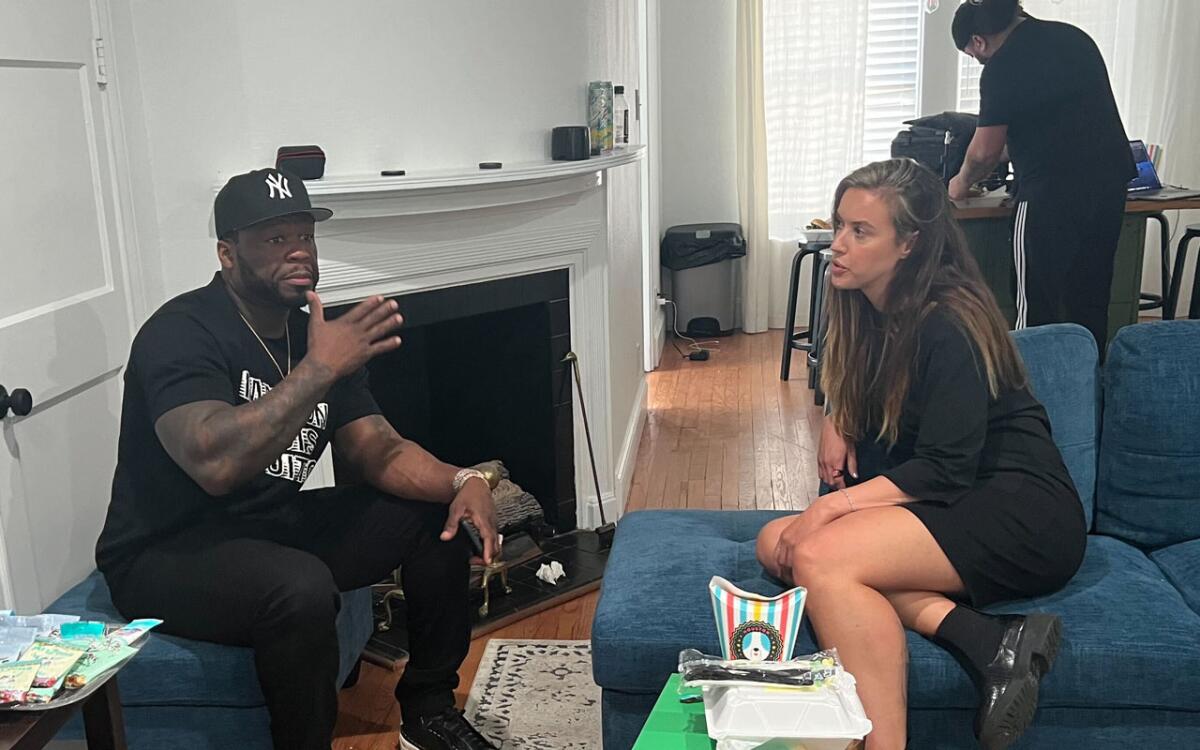
So Jackson contacted Webster, a journalist who he’d connected with through general media obligations, and one who he trusted would be able to get the job done. Webster, from the U.K., was grateful for the opportunity and excited for the project. And in talking more to Jackson, she found that they had similarly formative experiences.
“I remember the first conversations we had about our backgrounds and it’s really interesting because obviously, you know, we come from different worlds, but we kind of don’t. We talked a lot about our own upbringings and the trauma that we both had,” said Webster. “When we first spoke to the twins, obviously 50 was the one speaking to them the most. And again, it was really interesting because I think we both saw them as people rather than these drug-trafficking narcos.”
That connection, they believed, would have to be instrumental in getting the podcast off the ground and setting up the physical meeting. Webster and Jackson spoke to the twins and their families for “months and months” trying to gain their trust before meeting face to face to record and retell the entire story of their lives.
“When we started, we saw them as actual people that we could all relate to,” said Webster. “And we spoke a lot about, again, our own upbringings and whether you get a choice sometimes in life. Then about how they were groomed to fall into that place of dealing drugs. And it’s like, ‘Do you ever get a choice?’
“They said to us that they felt that we humanized them.”
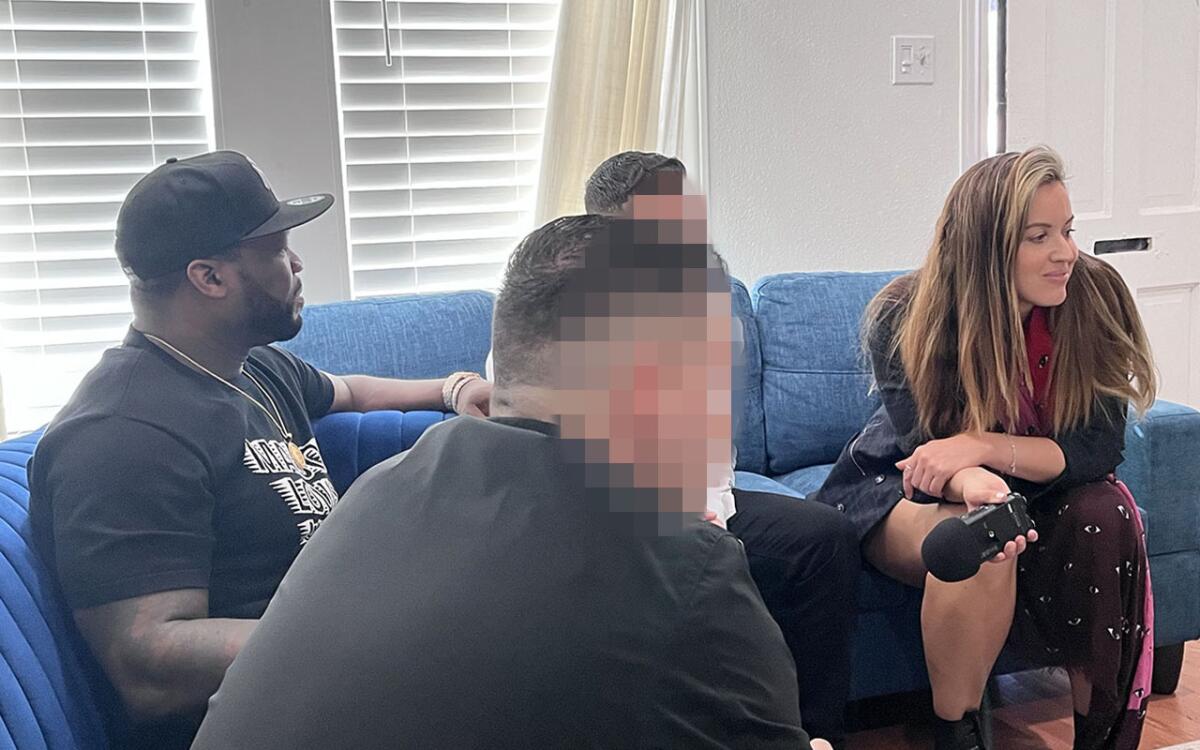
The actual gathering was something out of an action movie. Webster and Jackson had to get permission from a few government agencies and the families to physically meet. The event was set up in a safe house where the interior could not be seen from the outside, but the actual location was hidden in plain sight among regular citizens in a regular neighborhood.
“Yeah, even the backyard became ‘a location.’ You couldn’t see anything. Like the house next door, the windows. There was no visible area where someone could just look over there,” said Jackson. The brothers scouted their surroundings “and then they loosened up and was able to give it to us.”
“And it’s really interesting to watch that relationship in that house that we got. It is intense, isn’t it? It was like they’re so kind of focused and concentrating when they tell a story, and they have so much to tell and they want to make sure that they’re telling the truth. And it was kind of this intense, slightly paranoid environment,” said Webster.
Pile on the fact that these twin brothers, who had never been apart for any real extended time until they were caught, had actually not seen each other in roughly 12 years because of their incarceration. Unresolved issues were laid bare when they reunited, leading to arguments and heightened emotions. Webster and Jackson not only wanted to hear about their past, but get a glimpse of the relationship as it is now.
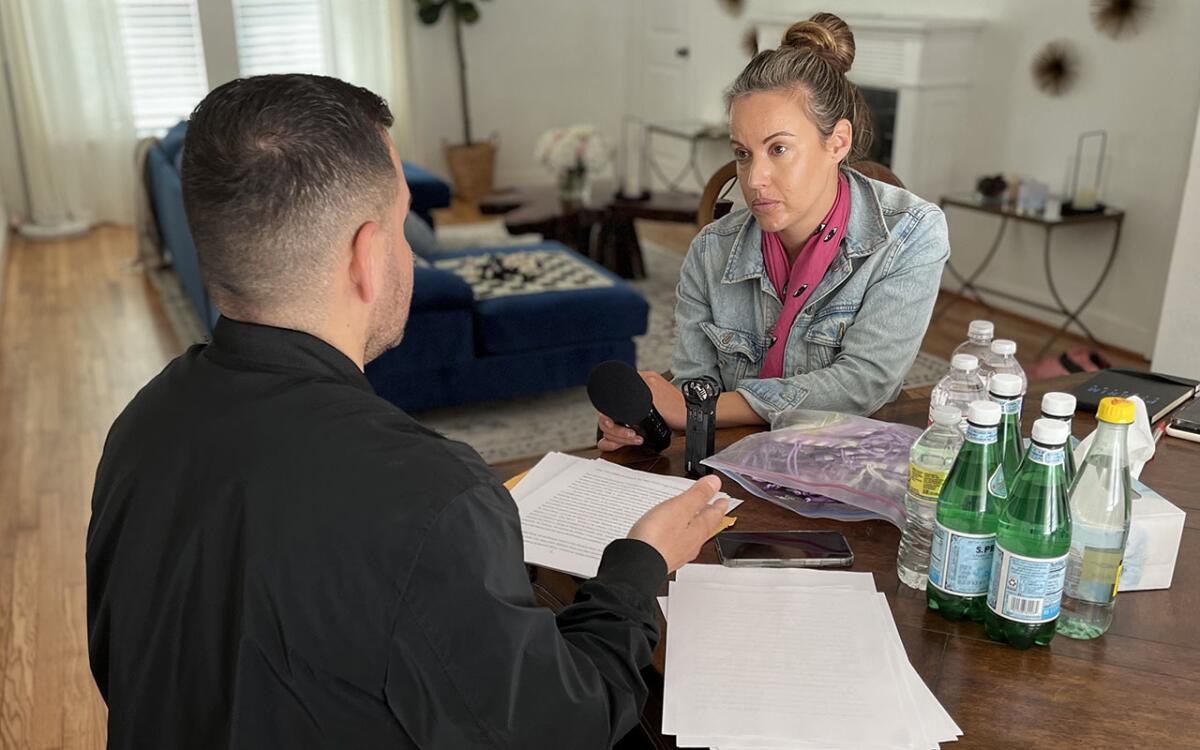
“We did recording separately, but we wanted, in that moment in that safe house, to show the relationship between the two of them,” said Webster. “Because of the trust and because of the safety aspects, we had to skeleton down. We stripped down and we had literally the most minimal team ever. Myself, 50 and another person, we kind of did everything at the same time because they would never have opened up to us like they did if we had a full team.”
When listening to the 12-episode series, there was a difference in tone between the early episodes and the latter ones. They are more serious and coincide with when the brothers began dealing with El Chapo and are drawn into the world of the Mexican cartels.
“When you put them together, you can see it’s interesting. Something about being twins, I guess, because they share characteristics. But, one is harder than the other. Jay [Margarito] don’t even have aggression in him. It’s just completely missing from his character. He’s just a logistics and business person. And then you see the tough s— come out of Peter. It’s there. He had to go through harder situations. He’s been kidnapped twice by the cartels,” said Jackson.
“And we did see them change over time because when we first met them, there was definitely like a kind of barrier to entry, and there was kind of this hardenedness about them,” said Webster. “When you speak to them now, they have, like, PTSD, so when they tell the story, it’s like they’re in the moment. So you sit there and you’re almost on the edge of your seat, and you can feel everything because if they don’t tell the story as past tense [then] they’re reliving it themselves because they’re still trying to work out their own [lives]. They have to try and face the decisions they’ve made, and a lot of people don’t do that.”
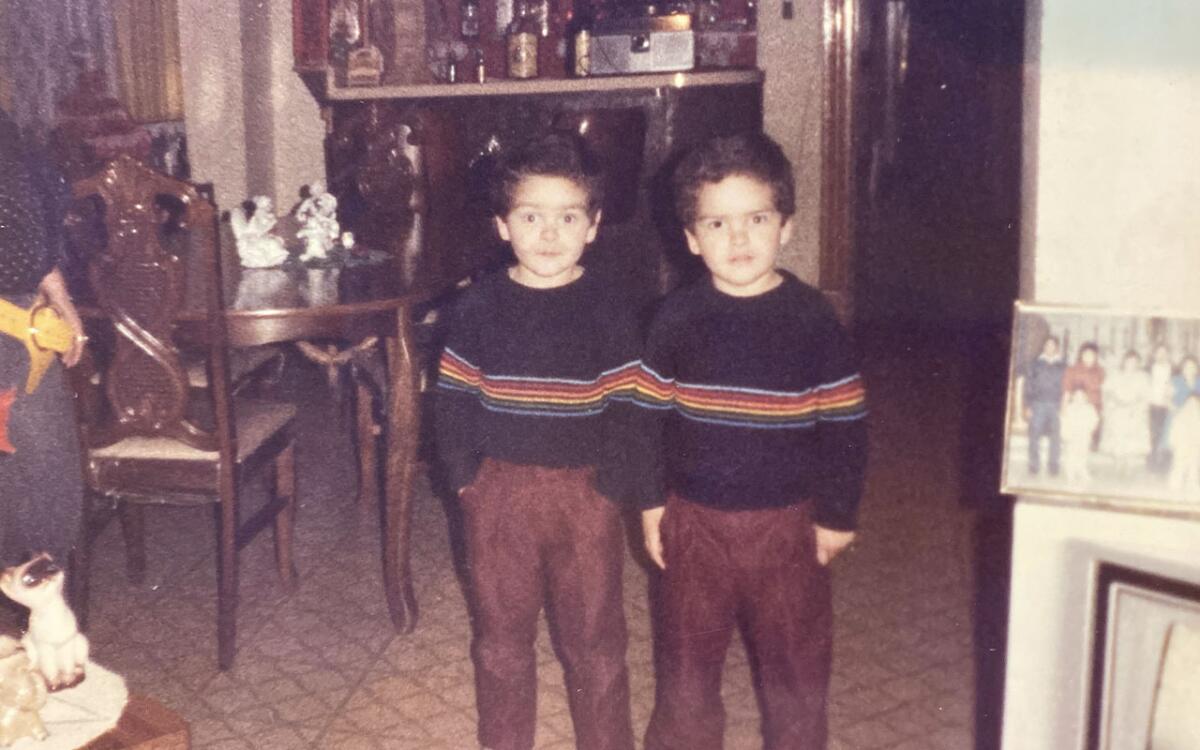
The brothers tell their story in a linear, almost cinematic fashion, so of course questions arise about the possibilities in other storytelling media. It’s a route that Jackson has trodden, and he’s ready to do it again.
“You’ll hear the story now. Then you’ll see a docuseries coming shortly after. And then you’ll see the scripted series follow,” Jackson said. “This show has the exact formula that I’ve been successful with repeatedly. In “Power.” In “BMF” [“Black Mafia Family” on Starz]. This is another version of it. And if you look at it at its nucleus, because of the two brothers, it’s just a family drama.”
It’s quite the family. The “Surviving El Chapo: The Twins Who Brought Down a Drug Lord” podcast is on Apple, Spotify, Amazon and wherever major podcasts are downloaded.
More to Read
The biggest entertainment stories
Get our big stories about Hollywood, film, television, music, arts, culture and more right in your inbox as soon as they publish.
You may occasionally receive promotional content from the Los Angeles Times.











